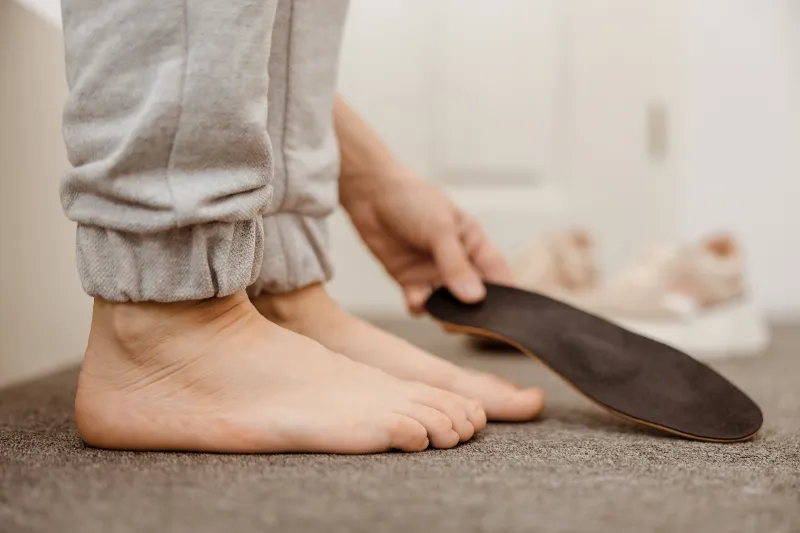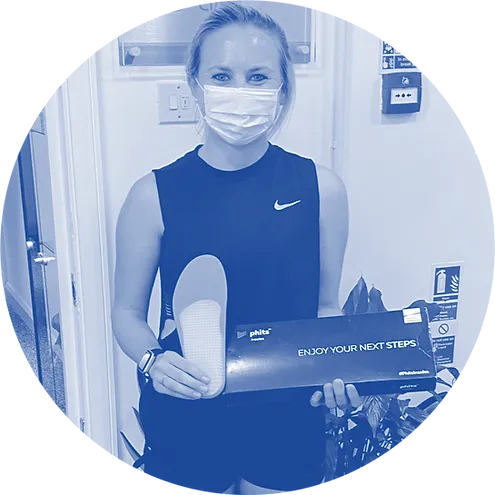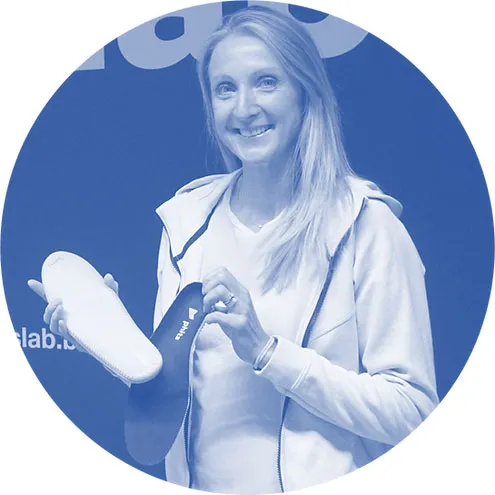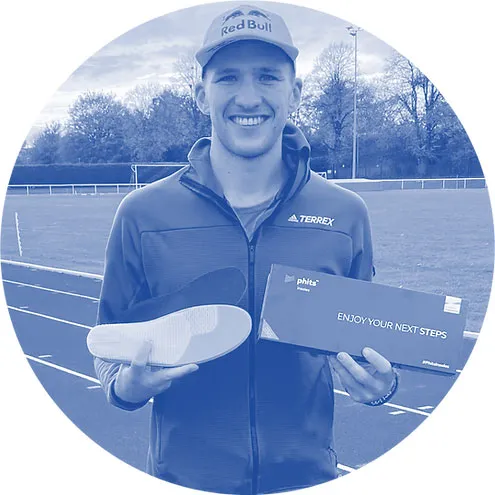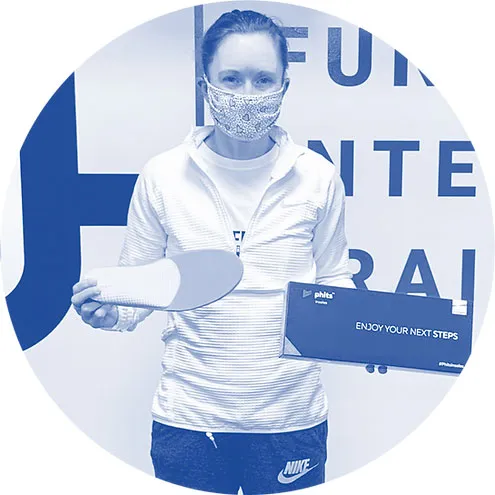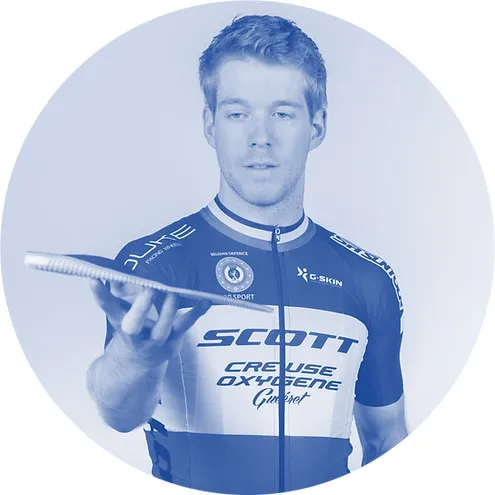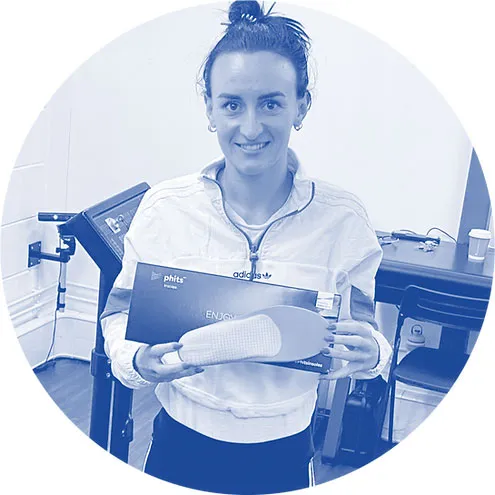Insoles & Orthotics in Ipswich
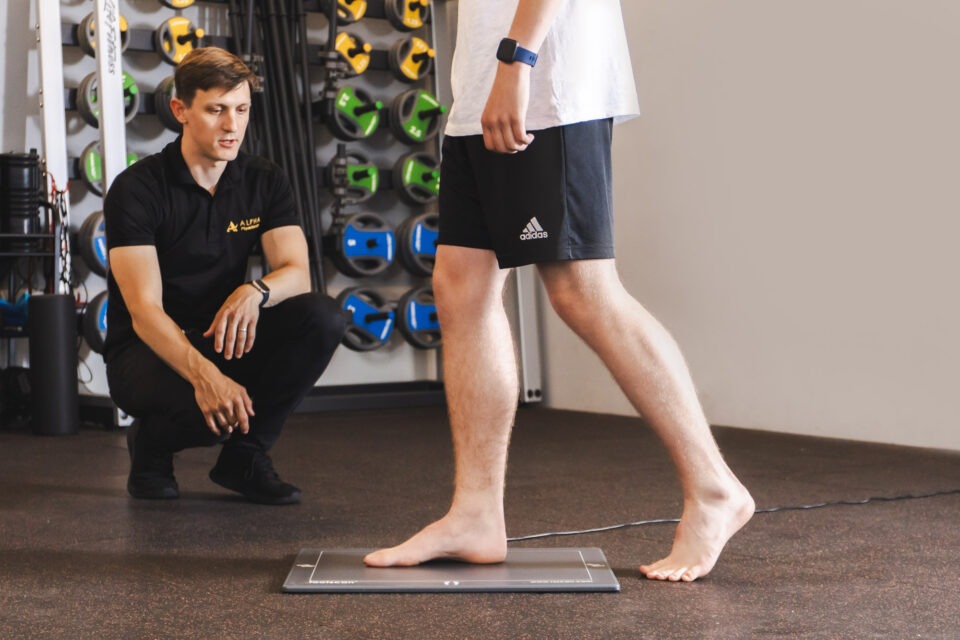
Industry Leading Technology, Award-Winning Orthotics, Unrivalled Results
Foot, knee, hip and back pain is commonly a result of poor biomechanics, often stemming from the feet. If left untreated, these problems can lead to further injury and discomfort.
In our Ipswich clinic, we specialise in advanced clinical gait and movement analysis using the latest Footscan technology. Footscan has been utilised in more than 3,000 scientific studies and is trusted by state-of-the-art movement labs and elite sports teams worldwide, from Team GB to Manchester City FC.
Common complaints that we deal with in clinic include:
Plantar Fasciitis
Plantar fasciitis is one of the most common causes of heel pain. It involves inflammation of the thick band of tissue that runs across the bottom of each foot and connects the heel bone to the toes, known as the plantar fascia.
Achilles Tendonitis
Achilles tendonitis is an overuse injury of the Achilles tendon, the band of tissue that connects calf muscles at the back of the lower leg to your heel bone. Achilles tendonitis most commonly occurs in runners who have suddenly increased the intensity or duration of their runs. It’s also common in middle-aged people who play sports.
Shin Splints
Shin splints (also known as medial tibial stress syndrome) is an inflammation of the muscles, tendons and bone tissue around your tibia. Pain typically occurs along the inner border of the tibia, where muscles attach to the bone.
Metatarsalgia
Metatarsalgia is a condition in which the ball of your foot becomes painful and inflamed. You might develop it if you participate in activities that involve running and jumping.
Morton’s Neuroma
Also known as an interdigital neuroma, a Morton’s neuroma is a benign (non-cancerous) tumour of a nerve. Morton’s neuroma is not actually a tumour, but a thickening of the tissue that surrounds the digital nerve leading to the toes.
Heel Spur
Heel spurs are small, bony growths on the heel. A spur may develop when the ligament that connects the heel bone to the bones in the toes (plantar fascia) becomes inflamed.
Heel Pain
Heel pain is often caused by over exersising, impact injuries or wearing ill fitting footwear. Symptoms may include sharp pain, pain in the back of the heel, or redness and swelling. Some of these symptoms could be signs of Plantar Fasciitis or Achilles Tendonitis.
knee Pain
Knee pain is a common complaint that affects people of all ages. Knee pain may be the result of an injury, such as a ruptured ligament or torn cartilage. Medical conditions including arthritis, gout and infections can also cause knee pain.
Back Pain
Back pain, particularly lower back pain, is very common. It usually improves within a few weeks but can sometimes last longer or keep coming back. Back pain can be caused by many things such as a direct injury like a pulled muscle, or a medical condition like sciatica. Back pain can also be caused by poor posture or a lack of symmetry through the body.
5 reasons why we use Footscan in your assessment
Professionally approved
Footscan is the first and only gait analysis technology to be ‘Professionally Approved’ by the Royal College of Podiatry, meaning that it meets the highest clinical standards.
Data-driven healthcare
Footscan quantifies what the eye cannot see, allowing us to take your gait analysis and orthotic prescriptions to the next level with accurate, objective data.
High-speed scanning
The high scanning frequency and sensor resolution of Footscan ensures accuracy in our data acquisition and repeatability.
Wide range of analysis tools
Enhanced 2D and 3D visualisations enable us to clearly communicate your movement data and directly compare it against other scans.
Evolving software
Our research and development team are continually enhancing the software based on the latest clinical publications and professional recommendations.
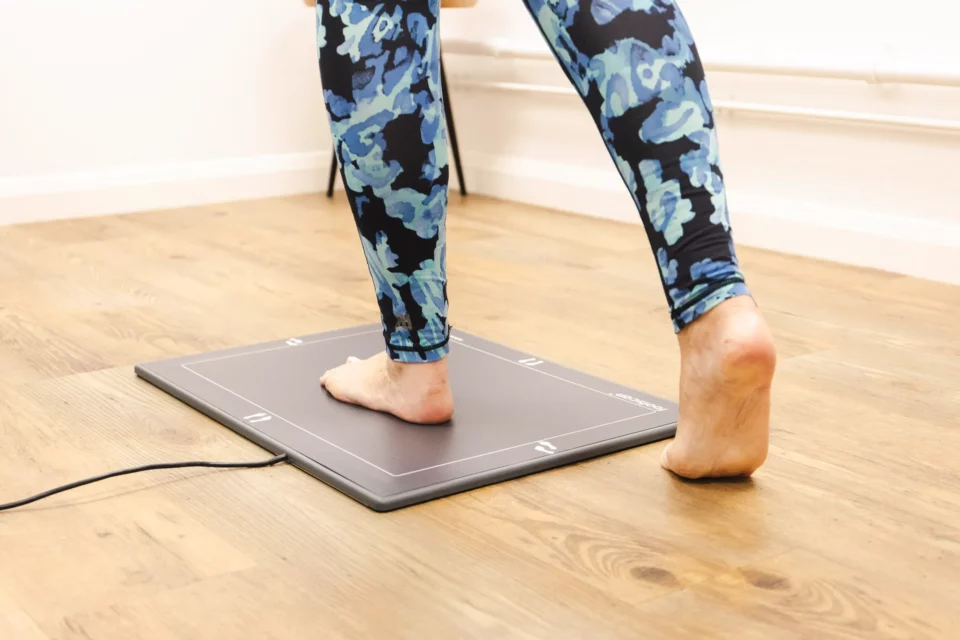
Our 5-step digital orthotics workflow to optimise your biomechanics
You wear orthotics whilst you move, so why not design them based on how you move? Using our cutting-edge Footscan technology and analysis software built on decades of scientific research, we use your unique dynamic movement data to determine what’s happening beneath your foot to generate your Phits 3D printed orthotic design.
Step 1
Measurement
Step 2
Analysis
Our expert clinician will observe how your feet function during your natural gait to identify any asymmetries or abnormalities in your foot pressure, timings and stability. We will then suggest the most suitable treatment pathway to assist you moving forwards.
Step 3
Design
Following your analysis, if deemed appropriate, we will design you a bespoke pair of Phits orthotics which will be 3D printed to meet your exact specifications using the dynamic data from your Footscan assessment.
Step 4
3D Print
Your orthotics will be 3D printed, quality controlled and personalised by our team at Materialise, the industry front-runners in 3D printed orthotic manufacture.
Step 5
Fitting
After a couple of weeks, you will return to the clinic and fit your new orthotics to optimise your foot function and comfort with every step.
Why choose our award-winning Phits 3D printed orthotics?
Data-driven prescriptive design
Traditional orthotics are typically designed using your static foot shape, whereas Phits are the world’s first 3D printed orthotics which are specifically designed based on your dynamic gait analysis using Footscan.
Optimal accuracy
Phits are accurate to the nearest 0.1mm with no room for error in the manufacturing process, providing tailored support and cushioning where you need it most. This ensures exact replicas can be produced if you require a second pair.
Backed by research
Through research and collaboration with leading Universities, our team continuously improves our algorithms. Our commitment to innovation, led by science, sets our state-of-the-art technology and software apart.
Minimal bulk and lightweight
Phits are less than half the weight of traditional orthotics whilst offering extreme durability and comfort, whether you are walking, running or playing sport.
Footwear specific
Regardless of your age or activity level, Phits offers specific designs to cater for your footwear; such as walking, running, football, golf, cycling, skiing and workwear.
Phits for all
Whether you are an elite athlete, recreational walker or factory worker on your feet, Phits will help your feet to adopt the correct foot motion, improve your movement efficiency and minimise your risk of injury.
Sustainable
As Paula Radcliffe states, “My Phits simply don’t wear out.” Not only are the devices robust, they are 3D-printed via selective laser sintering (SLS) using Bluesint PA12, which is created from 100% recycled powder. This process removes the waste associated with traditional orthotic manufacturing.
The choice of champions
Phits are the #1 orthotic choice of multiple British and World Champion athletes; from World Record breaking legends such as Paula Radcliffe, to current champions such as Charlotte Purdue to keep them moving pain free.
